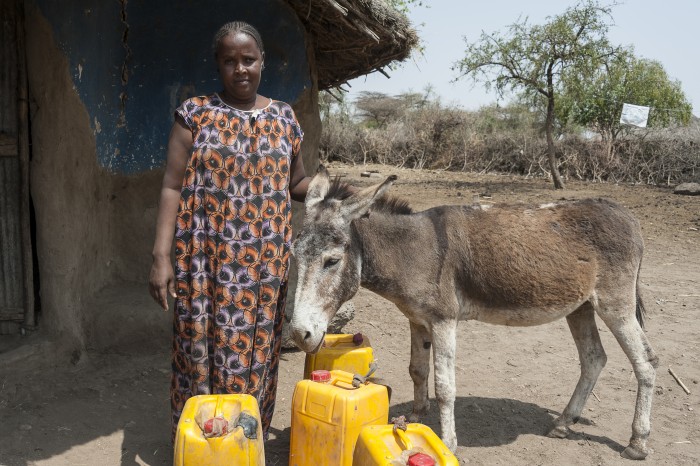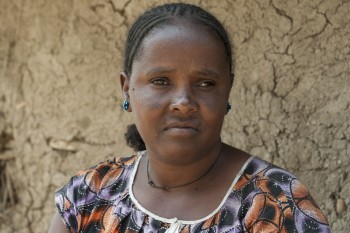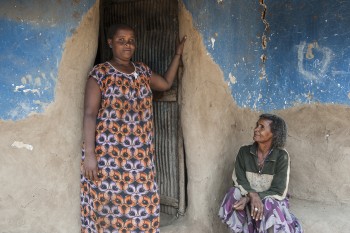
Husband in the city for work
Duwi Hawas, 30 years old, lives in Buta Wager, a small village, with her six-year-old daughter Genno Dinka. Her parents are living with her. Her husband has gone to the city to work. As is the case in nearly all the Ethiopian lowlands, hardly any rain fell in the whole area surrounding Buta Wagare during the last rainy season. In the parched fields, there are signs of erosion. When there is a lot of rain, the region struggles with heavy floods.

Food aid from the government
Duwi has a small plot of land. “I cultivate sorghum and maize there. The harvest failed this year. I earn a little money brewing beer from maize and can buy some food with it. I sell maize beer in my village, but I don’t earn much from that. I would like to learn how I can earn more from this. Fortunately, I am also getting some food aid from the government; I get grain and oil every month. Otherwise we could not live.”
Fear of floods after aridity
“The only thing I can do is to wait for rain. I am hoping for a good rain, but not too much. If there are floods, everything is washed away and we still don’t have a harvest. The floods also cause a lot of damage.”
Preventing disasters

The ACT member EECMY (Ethiopian Evangelical Church Mekane Yesus), a partner organisation of Kerk in Actie, is setting up a program to prevent disaster in Buta Wagare. It is focused primarily on women such as Duwi, who have to feed a family alone. District Officer Aman Ababu of the EECMY says, “Our disaster prevention program is focused on preventing flood damage, improving the soil, and storing rainwater.”
Particular attention for women
“Besides that, we want to improve living standards by offering activities allowing women in particular to earn money. They can breed goats, for instance, or set up a small business. We also want to help them sell their products. Duwi is brewing beer. Through training and support from us, she can move forward in selling her beer in the big city and getting a better price. We are planning to start a cooperative of farmers, supply good seed for planting, give training courses, and store the harvest cooperatively. We want to involve women farmers in this as well.”
Text: Mariken Stolk
